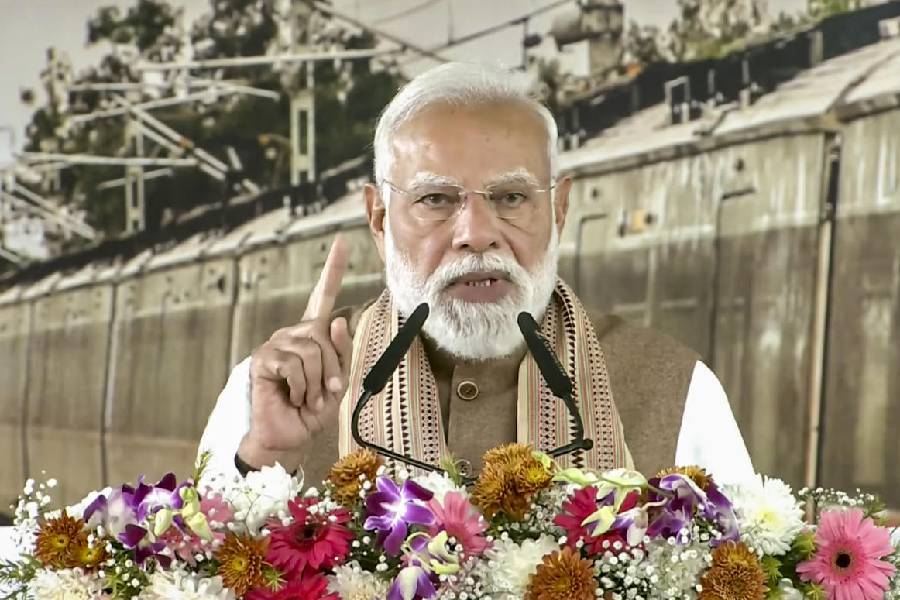|
|
The crescendo of arguments from those who are supporting India?s vote at the International Atomic Eenergy Agency on the Iran issue reminds one of an old lawyer joke. A man, accused of hitting another man responded in court thus. ?My Lord, the charge against me is totally baseless for three reasons. First, I was out of the country the day the incident occurred. Second, the blow had to have been struck by a right handed person any my right arm does not work. And third, He started the fight.? So we are now witnessing an unprecedented blitzkrieg of arguments for why we should have voted against Iran. First, we were trying to defend the vote by saying that we were working in Iran?s interest, buying time for diplomacy, making room for moderation and trying to find a role for India in this crisis. Then the argument became, Iran really is a proliferator. The A.Q. Khan connection was trotted out with aplomb. The astonishing thing is that even the IAEA does not make as tall claims about Iran?s alleged NPT violations as we do. Then the argument went even further. Iran is an odious theocracy. Why would we possibly side with it? Besides, it is not even a reliable friend. It has not supported us on the issue of the security council or Kashmir.
Potted histories appeared showing the number of times Iran?s interests have diverged from India?s. But these histories were selective, often forgetting to mention the number of times Iran helped India ward off censure for its conduct in Kashmir.
And then of course, there is the staple argument: we voted the way we did because of our national interest. We did not buckle under US pressure. But the curious thing is that there is no debate about how the national interest came to be defined in a way that justifies this vote. If national interest has a single and narrow purpose, to get the Nuclear Suppliers Group to relax its restrictions on India, then the vote makes perfect sense. But to say this is just to admit that we are operating under the constraints imposed by the United States of America. But the possibility that our single-minded and over-anxious determination to break NSG restrictions might do us more harm in the long run is not even being considered. For one thing, we are now revealing to the world how precarious our nuclear programme really is. We are thus bargaining from a position of weakness rather than strength. This will give the US more levers on us. Second, at this point relaxation of NSG restrictions is probably just a matter of biding time. Are we so desperate that we will overlook our other long-term interests and sacrifice everything at the altar of relaxing NSG restrictions immediately?
What have we sacrificed by this vote? I agree with those who think that the energy relationship with Iran is a red herring. It will be in Iran?s economic interests to sell us energy regardless of this vote and it will probably come around. And contrary to what those who support India?s vote at the IAEA would like to believe, many of us who are sceptical of India?s vote have no illusions about Iran. We do not defend its regime, we are not sentimental about old civilizational links, we are not anti-American and have no nostalgia for the non-aligned movement and we don?t even belong to the left. But India?s vote was still imprudent for a number of reasons.
First, a characteristic failing of US foreign policy is that it suffers from historical amnesia. What is Iran?s tussle with the IAEA about? This question cannot be understood simply within the framework of an alleged desire to develop weapons of mass destruction. Think of recent Iranian history. Here is a country that emerged out of colonialism, only to be ruled by a US-backed puppet regime in the form of the Shah. It undergoes a popular (even if to many eyes distasteful) revolution, only to be consistently hounded and pushed to the wall by the West. The West uses Iraq in a war against Iran. Then the US invades Iraq, and constantly threatens military action and sanctions against Iran. In short, this is a country driven to the wall by the West.
Yes, Iran has a regime that a lot of us would not want to live under; and it has sometimes supported extremist groups. But this cannot obviate the fact that Iran has lived an existence that has been beleaguered by domination or threats from the West; that its own autonomous development has been disfigured by having to operate under the shadow of Western pressure. India, of all countries, should be in a position to understand the sentiments and dispositions that this sort of pressure gives rise to. Iran?s dalliances with the IAEA (and they are still, at most, minor infractions) are about self-respect. The Americans knew this and the European Union offer was designed to push Iran against the wall. Instead of giving Iran some room in the international community, we have gone on to side with the West. We should have been telling the West that the one thing we can confidently say is this. Western pressure is going to be more counterproductive than constructive. It is not the threat of force, but setting in motion a historical process that lets Iran negotiate with its history on its own terms that is the key to stability in west Asia. West Asia is on the brink of a precipice and it will require delicate handling, not a ganging up of world powers.
Second, the IAEA vote is a slippery slope. India must be hoping for a miracle between now and November so that it is not put on the spot again. But this miracle is extremely unlikely. With what justification will we now reverse our vote? Remember the gambit the US used in Iraq. It appealed to the fact that countries had bought into the charges that Saddam Hussein was amassing weapons of mass destruction, and were balking from acting upon this recognition. Having conceded the first step to the US, how can we, in all good faith, stop from following through on this logic?
Third, India is beginning to have a serious attitude problem. The arrogance of power is threatening to blind us even before we have acquired that much power. We argued that we wanted to signal that we are a responsible nuclear power. In a sense we are. But it is not clear that this claim amounts to much. If our yardstick of comparison is the great state of Pakistan, of course we have acted responsibly. But are we any more responsible in comparison to Brazil and South Africa, two countries that also did not go along with the US vote? Let us face it, when it comes to nuclear weapons, we have no locus standi. Our foreign policy establishment is gleeful that we have given up the moralistic pieties of the non-aligned movement. So far so good. But credibility in the international arena cannot be based on power and self-interest alone. We have to give other countries reasons to acquiesce in our authority. But by being so cynically self-interested in our use of our votes, we are undermining our authority. We are acquiring so much a sense that the momentum of history is on our side that even doing what the Russians and Chinese are doing at the IAEA, abstaining, embarrasses us.
Our vote at the IAEA was brazenly cynical and therefore imprudent. Its consequences will depend upon what happens in world politics. But there is some truth to the charge that the weakness in our foreign policy is that we are not thinking about the future shape of world politics at all.











